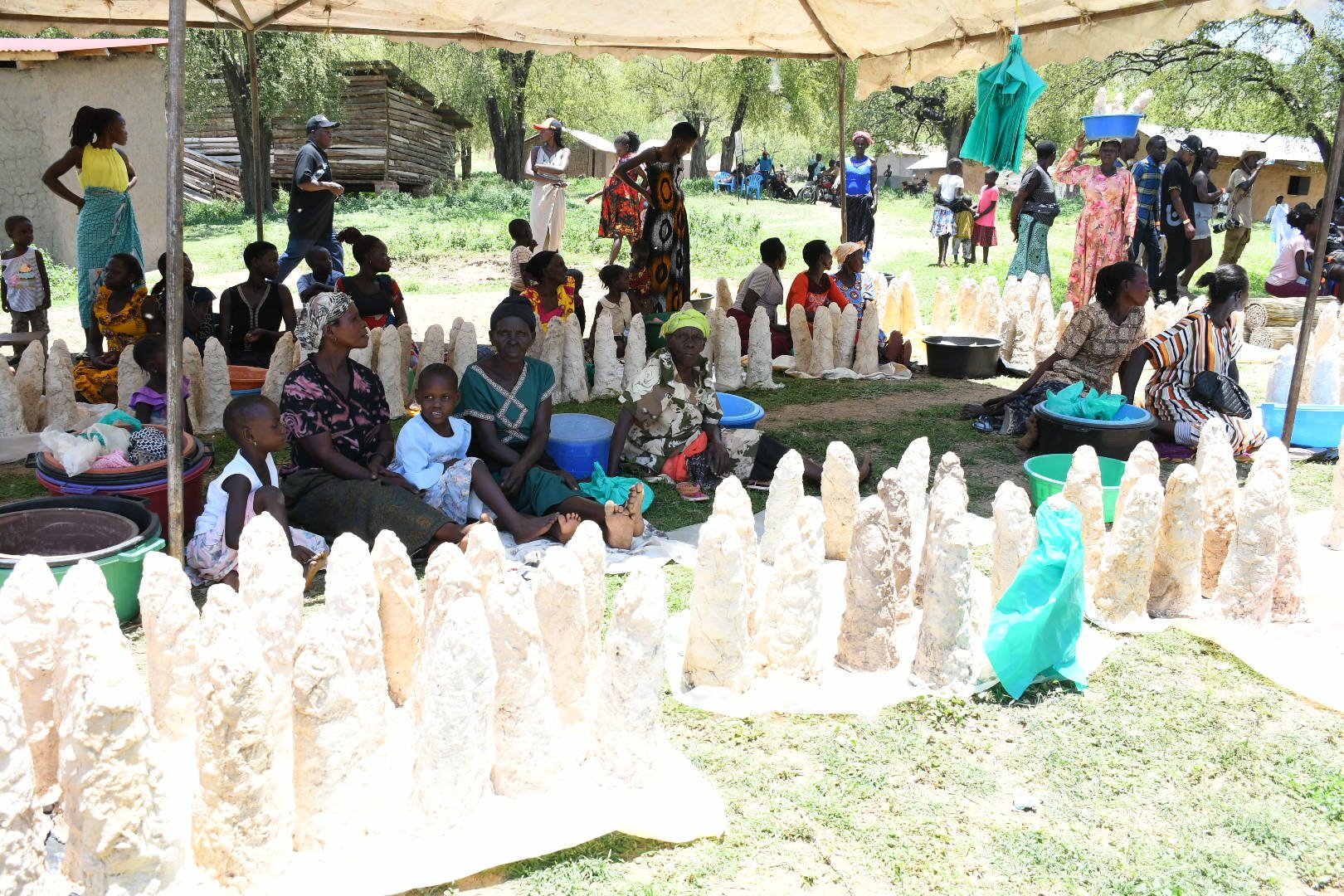Kibiro women mint cash in salt-making

Women in Kibiro Village, Hoima District, display their freshly produced salt last week. PHOTO/ALEX ASHABA
What you need to know:
- The group considers itself blessed with naturally salty soil, which has become their vital source of livelihood.
Ms Judith Katusabe, a resident of Kibiro Village in Kigorobya County, Hoima District, has for the last 20 years been scraping the soil on her land using a metallic plate.
The 40-year-old considers the patch of land her garden as it contains particles that she later transforms into salt.
“Every day, I wake up with my tools ready to work in this garden of mine. I begin by scraping the surface to gather the salty soil, heaping it up,” Ms Katusabe explains.
“Once collected, I dry the soil in the sun and then take it home to initiate the salt-making process,” she adds.
Although the activity requires her to spend more than four hours each day under the scorching sun, Ms Katusabe says it has been a reliable source of income for her family for the past two decades.
After spending about a week scraping and accumulating the soil, she transports it home to commence the intricate process of salt production.
Ms Katusabe places a portion of the soil in a metallic saucepan on the cooking stove. At the bottom of the saucepan, she creates a small hole and pours water in the soil, forming a mixture.
Beneath the saucepan, she positions another container to collect purified water containing salt. The water is initially salty and colourless. It takes about 30 minutes for a single saucepan of soil and water to be filtered.
Ms Katusabe points out that the volume of salty water collected depends on the amount of soil, and it typically takes around 30 minutes for a single saucepan with soil and water to be filtered.
“During boiling, as the water evaporates, the salt remains in the saucepan, which I remove and set aside. Over time, it solidifies into a hard block of salt that I can then take to the market for sale,” she says.
In the market, the crystallised salt, measured in a heap equivalent to a kilogramme, is sold for between Shs20,000 and Shs25,000.
“What I have achieved is all thanks to salt making. I have been able to purchase land, pay school fees, and support my family. On market days, in Kigorobya or Hoima Town, I can earn between Shs100,000 and Shs150,000, depending on the day’s sales,” she said.
This humble yet industrious community has found a unique and sustainable way to thrive by harnessing the salt-rich soil of their region.
This laborious effort results in leaching and boiling the salty soil to extract the salty water, which is then used to produce salt. The residual soil is not wasted; it is mixed with fresh soil, ready to repeat the salt production process.
Kibiro Village is situated on the shores of Lake Albert, an area where women like Ms Katusabe scrape the soil near Kibiro hot spring. Locals in the area consider themselves blessed with naturally salty soil, which has become a vital source of livelihood for many. They attribute the soil’s saltiness to the flow of salty water from the hot spring, which keeps the soil consistently moist.
Ms Katusabe’s story closely mirrors that of Ms Irene Businge and more than 100 other women who are earning a living from salt production.
Ms Businge emphasises that salt production is the primary source of income for her and many others, aside from fishing.
“Here, we don’t have banana plantations or other types of gardens; we rely on salt gardens to sustain ourselves. We sell the salt to buy food, but we need an expanded market where we can sell this salt. The locally made salt is not only healthy but also well-received by those with diabetes,” she explains.
The salt-making peak season in Kibiro is during the dry season when ample sunshine is available to dry the soil. During this period, one can produce more than 100kgs of salt in a month.
However, during the rainy season, the frequent flooding disrupts the production process.




